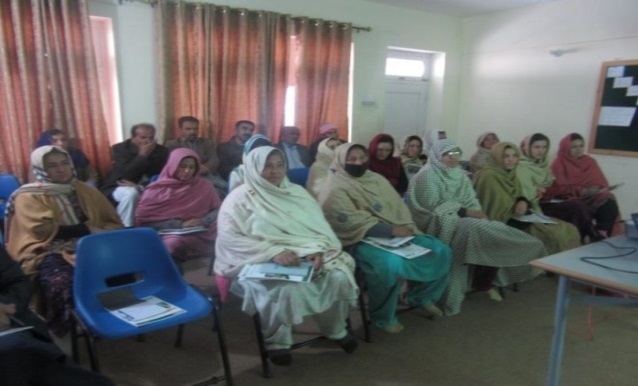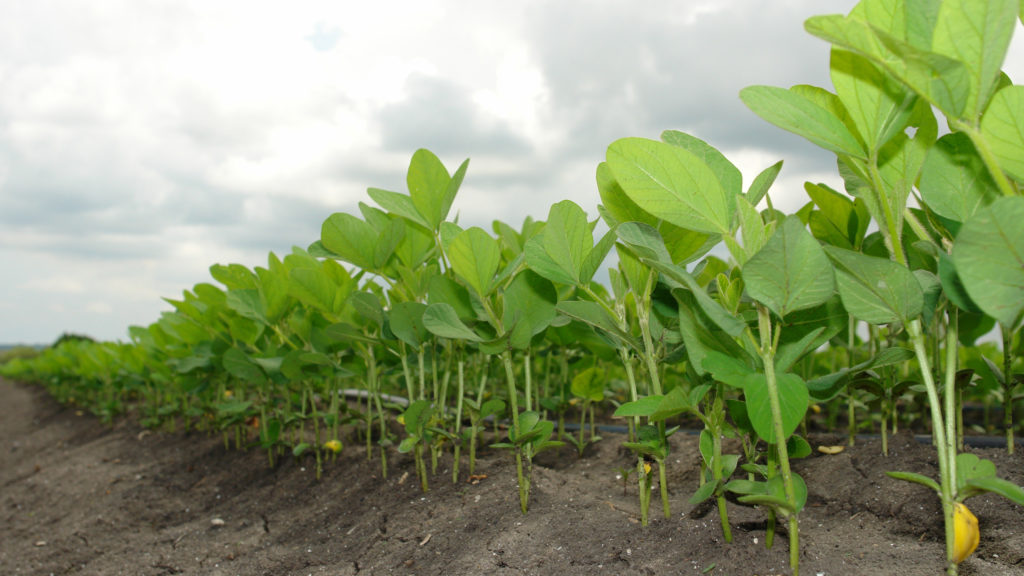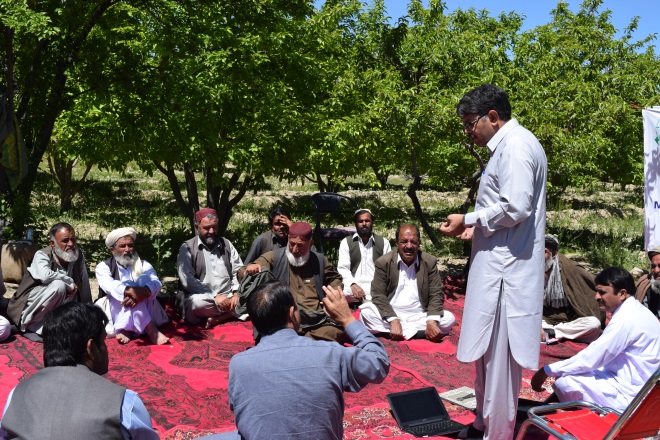Fertilizer Optimization Tool helps return son to teacher training school
By Monica Kansiime, Scientist Seed Systems, based at CABI in Nairobi, Kenya In a previous blog post I outlined how the Fertilizer Optimization Tool (FOT) is paying dividends for farmers – helping them, in some cases, to report a seven-fold increase in their yields. Charles Wafula is a farmer and resident of Buhehe in Uganda who…
Empowering more women in the fight against fruit flies in Pakistan
More women in the Gilgit Baltistan (GB) region of Pakistan are benefiting from a Phytosanitary Risk Management Programme (PRMP) aimed at using a range of biological controls to fight the fruit fly pest which can impact heavily on rice and horticultural crops. PRMP, which is funded by USAID via United States Department of Agriculture (USDA), was initiated in…
CABI on cotton (part 2): The famous farmer and The compost king
In part one of ‘CABI on cotton’ we heard about 100 Pakistan cotton farmers, as part of CABI’s Better Cotton Initiative (BCI), attending a seminar on integrated pest management. In part two, we hear a couple of success stories from farmers on how taking part in BCI is helping them produce better cotton.
CABI on cotton (part 1): Farmer seminar on pest management
Cotton. How many of us come into daily contact (literally) with this wondrous natural fiber? Used in a huge array of materials, from the obvious clothing and cotton wool buds, to the less obvious products like cottonseed oils used to make soap, margarine, emulsifiers, cosmetics, pharmaceuticals, rubber and plastics, the cotton plant is woven into…
‘Digging deep’ to strengthen the potato value chain in Pakistan
CABI in Pakistan, under its ACIAR-funded ‘Strengthening Vegetable Value Chain in Pakistan’ (SVVCP) project, is committed to improving the value chain of vegetables for smallholder farmers so they can improve their livelihoods. Dr Babar E. Bajwa, Project Leader, reports on the progress being made so far… Potato is a major crop in Pakistan with great…
Soybean farmers in Nigeria embrace new production technologies
By Solomon Duah, Communications Specialist, CABI Ghana There is a growing interest and enthusiasm in the production of soybean among farmers in selected states in Nigeria as new yield-enhancing and soil fertility-improving technologies are being introduced to them through an integrated farmer education campaign.
Embracing ‘stakeholder interaction’ for better business strategy and integration in Pakistan
Dr Umair Safdar, Development Communications Executive at CABI in Rawalpindi, Pakistan, looks at ‘stakeholder interaction’ for better business strategy and integration in Pakistan through the cluster-based Agricultural Transformation (CDBAT) Project… Stakeholders strongly influence a project’s success, particularly for complex projects with heterogeneous stakeholders. Therefore, understanding their influence is essential for project management and implementation.
World Food Day 2018 – Feeding our appetite for food security
By Dr Dennis Rangi – Director General, Development at CABI based in Nairobi, Kenya On this World Food Day 2018 the issue of feeding the world has never been in sharper focus. By 2050, agriculture will need to produce almost 50 percent more food, feed and biofuel than it did in 2012 just to meet…
Boosting cocoa production through improved pest management
Reblogged from ACIAR PNG is benefiting from integrated pest and disease management strategies that are reducing incidences of cocoa pod borer and ensuring profitable cocoa crops. More than 150,000 households in PNG depend on cocoa for their livelihoods. Families and communities rely on the income generated from their cocoa crops to buy food, making it…
Empowering marginalized communities: Success story of Mr Maula Dad, an apple grower from Balochistan
Balochistan province is famous for producing apples, contributing more than 80% to the total apple production in Pakistan, and therefore has a significant impact on the household income of farmers in the region. However, apples are also prone to infestation by a number of different pests, of which the apple codling moth (Cydia pomonella) is of…




